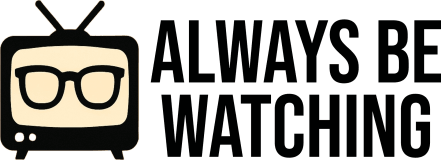Simon Miraudo on the wild history of censorship in Australia
Simon is the author of Book of the Banned: Devilish Movies, Dastardly Censors and the Scenes That Made Australia Sweat.
One of the best books of the last year was Book of the Banned: Devilish Movies, Dastardly Censors and the Scenes That Made Australia Sweat. It was written by Australian film critic Simon Miraudo and tells the wild history of Australian screen censorship.
You might initially think that the subject is a little dry, but instead Miraudo keeps it brisk and lively. It’s a raw and uncensored look at censorship.
The dirty secret of Australia is that while we prize the bush rangers and the idea of the free spirit, we’re really a country of cops - policing each others activity and taking too strong an interest in what we are watching on each others screens. This book is a fantastic reminder of just how frequently the screen culture we consume in Australia has gone through a puritanical filter.
I interviewed Simon over email about his book, which I couldn’t more strongly recommend. If you do want to check it out, the best place to find a list of stockists is bookofthebanned.com. You can also buy the book directly from Simon at the site, in physical and ebook formats.
If you do buy a copy, let him know that you heard about it here.
Dan: What is unique about Australia's relationship with censorship to efforts internationally? What are we concerned about?
Simon: Yes, we are very weird about it! Our relationship to film censorship is unique in that the history of film can basically be lined up exactly against the timeline of Australia since federation, so you have this battle to define national identity raging just as cinema is emerging as the dominant pop-cultural form. The first feature length film (depending on your definition of 'feature length') was Australian-made--The Story of the Kelly Gang --and it was perfectly placed to solidify our self-identification as a country of authority-defying rebels. But its release, and the growing success of the 'bushranger' film genre, was also impetus for the government to clamp down on this 'immoral' new medium. So if our story of post-colonial history is this fight for the soul of Australian identity, our story of censorship proves we're not actually 'bushrangers'; we're cops. And we see that reflected throughout all facets of Australian society over the next 100 years, into the 21st century. Most of us are in denial about it, but I mean, have you met the Opposition Leader?
I found while reading the book that through our history of censorship, it is really a history of our relationship with culture. So many of the movies we see as iconically Australian are often a reaction against voices of censorship.
You're absolutely right; without denying for a second that we obviously live in one of the more democratically 'free' nations in the world, Australia is nonetheless extremely reactionary. Every decade (or even moment) of progress, is immediately counteracted by a step in the backwards direction. But to focus specifically on films, you can look at the success of Alvin Purple or the Ozploitation genre in the 1970s, through to even the homegrown pride in our modern horror features, as having emerged in the wake of a period where we'd been rapped on the nose for trying to get our sex-and-violence kicks from (censored or banned) international imports. Subversion can only exist when there's something to subvert. That's how Easy Rider and the New Hollywood movement was born too. (BTW, we also censored Easy Rider in Australia by deleting all the drug-taking, which is kind of like deleting all the motorbikes.)
Australia self-identifies as a nation of easy-go-lucky larrikins with a "she'll be right, mate" attitude, but the reality has always been that we don't treat anyone who operates outside of the margins of society especially well. Why do you think that is, and why are we such a nation of wowsers (a term I only learned is Australian thanks to your book)?
To 'settle' Australia required a colonial appetite for genocide; to federate it required a desire to curtail state freedoms. I know that seems like a long-bow to draw in relation to film censorship! But I guess to answer your question, when you consider what was required to make 'modern' Australia, why are we surprised that the parallel censorship of film was driven by a sense of social control and perceived religious morality? One of my favourite stories from researching Book of the Banned is that the 'wowsers' wanted to use cinema as a tool to preach and proselytise, so in the 1920s and 1930s, once they had instituted mass censorship of movies, they started teaching film in Aussie schools. But instead of birthing a generation of priests, they invented a generation of film critics, and it was exactly those folks in the 1960s who started rebelling and pushing for the release of more transgressive local and international films.
Australian TV has pushed the envelope when it came to sex and nudity on screen, with plenty of boobs and bums on our broadcast later-night soaps and dramas. Why was Australia so free with this compared to, say, the US and UK, and what do you believe has caused us to go in the opposite direction with a more puritanical outlook in the last 20 or so years?




